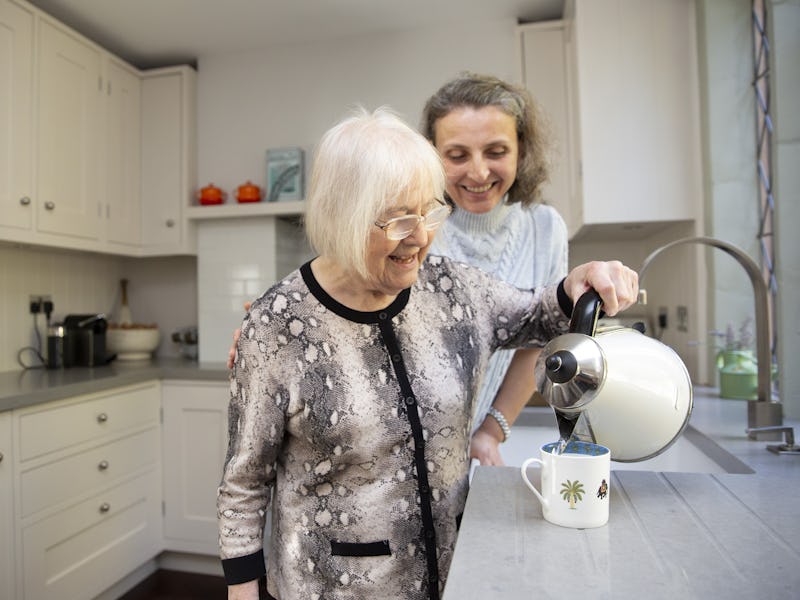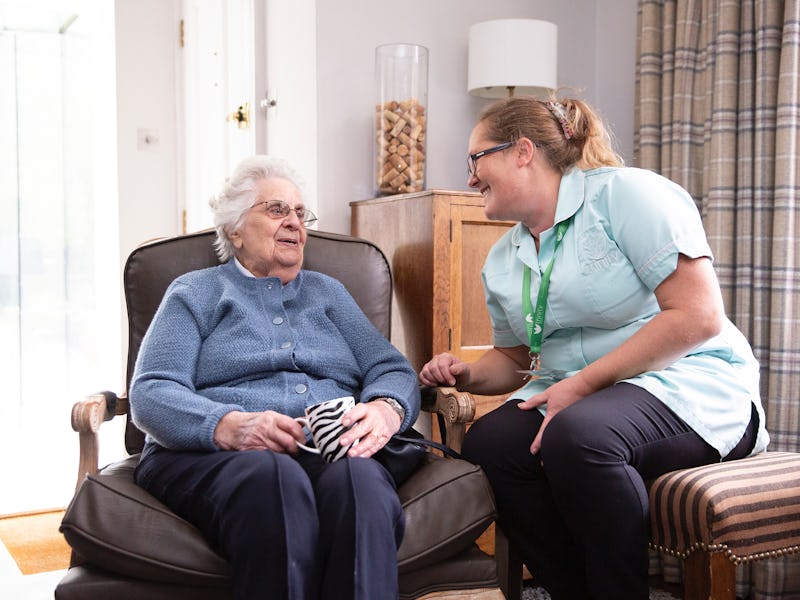| Previous Page: Diagnosing Dementia | Next Page: Tips for Living with Dementia |
|---|
Although a majority of dementias cannot currently be cured, medical and scientific research is unrelenting in the commitment to developing new treatments for dementia. Advances are being made every day. Even if a research project doesn’t produce evidence for a cure, the information gained from the research will help to develop further research so future research can be more focused and effective.
Although dementia may affect many aspects of cognitive functioning, a support network of loved ones, medical professionals and care providers will ensure you receive the support to help you access the life you know and love. Many people living with dementia lead active and fulfilling lives for many years. It is absolutely possible to live well with dementia.
Non-medical treatments for dementia
With ‘person-centred’ support (focusing on that person and their individual needs and preferences), much can be done to help someone live well with dementia without drugs or medication. In many circumstances, health professionals actually advise that you or your loved one explores a variety of non-drug support options before seeking medication.
This isn’t without good reason. By building a support network of medical professionals, care providers, loved ones, groups and charities will ensure you receive the advice, guidance and compassion you need to truly live well with dementia:
- The news that you or a loved one is living with dementia can be an emotional time and a diagnosis can leave you feeling isolated and anxious. By sharing your thoughts and feelings during talking therapies such as counselling or support groups, you will be able to find reassurance, support and advice on understanding your diagnosis and planning for the future to ensure you can keep living the life you love.
- Cognitive stimulation therapy will help to keep the brain active which is an important way to combat the damaging effects of dementia. Cognitive stimulation therapy involves doing themed activity sessions over several weeks and they can be a valuable avenue to meet new friendly faces and support one another.
- Independence is often a concern for someone living with dementia. Although cognitive functioning declines over time, there is much that can be done to help you or your loved one live safely, confidently and as independently as possible. There are practical devices such as pill boxes or calendar clocks which are designed to break tasks into simpler steps that are easier for the brain the process. The support of a care provider is also a valuable source of support for you and your loved ones.
- Activities such as storytelling, story-sharing and reminiscing can be an enjoyable experience. By sharing life stories and memories, the activities and interaction can help improve someone’s mood, wellbeing and mental abilities.
- Other popular activities are often organised by charities and support groups, and they are available across the country. It is absolutely vital that people living with dementia stay as active as they can – physically, mentally and socially. Taking part in meaningful activities such as singing, exercising or craft work enables you or your loved ones to discover companionship, confidence and self-esteem.
Medication
Scientific and medical research has developed medication in various forms such as tablets and vaccines, all of which can help to treat the symptoms of dementia.
There are three main drugs that are widely used in the treatments for dementia-related symptoms: donepezil, rivastigmine or galantamine. These drugs are most often prescribed to those living with mild to moderate Alzheimer’s and they are designed to help with memory, motivation, concentration and aspects of everyday life. As Alzheimer’s progresses and the symptoms become too challenging for these drugs, a drug called memantine may be prescribed to help ease severe symptoms or challenging behaviours.
The three drugs which are most often used to treat the symptoms of Alzheimer’s (donepezil, rivastigmine and galantamine) can also be helpful for someone with dementia with Lewy bodies who are experiencing distressing hallucinations or delusions or challenging behaviours.
Those living with vascular dementia will typically be prescribed medication which is designed to tackle the medical condition(s) which caused the dementia. Drugs which control high blood pressure, high cholesterol, diabetes or heart problems can help to steady the progression of dementia.
Given that experiences of dementia vary extensively from person to person, the medication received by one individual is likely to vary from another depending on the type, stage and symptoms. Drugs for depression or anxiety, sleeping tablets or antipsychotics are often used simultaneously with other drugs to ease the symptoms of dementia.
| Previous Page: Diagnosing Dementia | Next Page: Tips for Living with Dementia |
|---|

You may also be interested in











